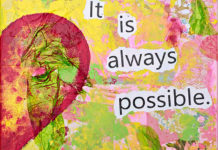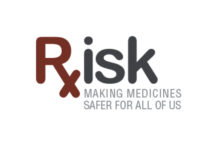Do Antidepressants Worsen the Long-term Course of Depression? Giovanni Fava Pushes the Debate Forward.
In 1994, Italy's Giovanna Fava, editor-in-chief of the journal Psychotherapy and Psychosomatics, wrote for the first time of his concern that "long-term use of...
Out of my Mind. Driven to Drink.
This is an article written by a woman named Anne-Marie. I am publishing it here because it epitomizes what RxISK.org, a company I have founded, is all about. It tells of one woman extraordinarily getting to grips with a problem she has on treatment. My hope is that when RxISK.org is up and running we will be able to make it easier for people like Anne-Marie to engage with their doctors to solve problems like this.
Envisioning Psychiatric Drug Freedom
Psychiatric meds can shut down the emotions and consciousness enough to make it possible to tolerate dynamics that would inspire rage or surges of empowered activity without the meds. It can be helpful to look closely at these blocks and start to create a map to freedom, understanding that it is a complex process that involves not only the physiology of the body of the individual taking meds, but the architecture of the social system around that person.
The Taper
Part of what has scared me straight about ever starting a patient on an antidepressant (or antipsychotic or mood stabilizer) again is bearing witness to the incredible havoc that medication discontinuation can wreak. I am half way through the first e-course of its kind (on withdrawing from psych meds), and it has been incredibly well-received. There are so many people out there, disenfranchised by psychiatry, skeptical of its promises, and who want a better way, a more thoughtful assessment of them as whole persons. We seem to be onto something here, so let’s keep the dialogue flowing, keep our eyes wide open, and reform what psychiatry means, one patient at a time.
RxISK Stories: Withdrawal from antidepressants – V’s story
I quit taking Prozac using a step-down method. Started in Sept. 2011 and finally off in January 2012. I experienced severe loss of balance early on, which progressed into full-blown ataxia & parasthesia. Have had extensive blood-testing & MRIs of brain & cervical spine, all negative! I have to believe this is a result of coming off Prozac, although most sites say the withdrawal side effects don't last this long.
We Have Seen the Evidence Base, and it is Us
Anyone who has used benzodiazepines and sleeping pills knows how difficult it is to get off them (worse than heroin!) and how much time it takes to recover. Although there is a lot more helpful information on the web these days, a lot of it is based on anecdotal accounts, personal stories and theories rather than “real” evidence.











